Hard water near Minnesota
Stop hard water spots & scale with Culligan
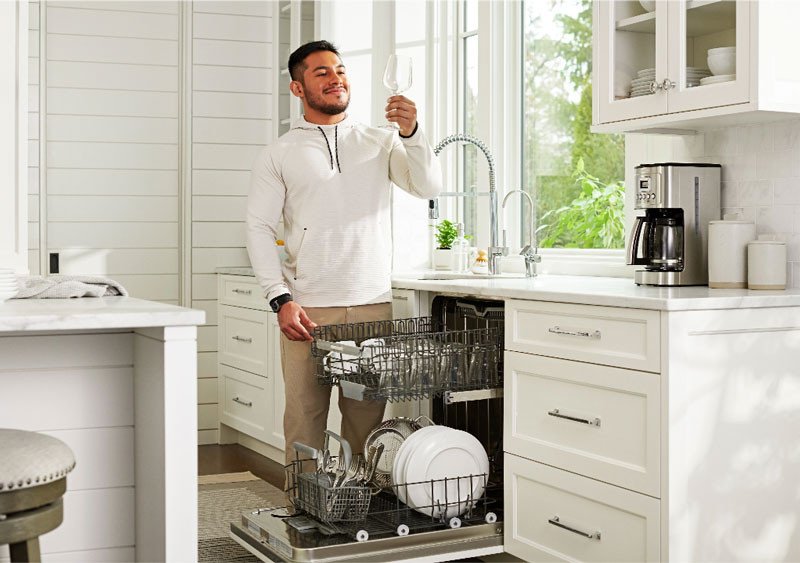
Hard water occurs naturally in more than 85% of the water supply in North America, including in Minnesota which is considered variable.
Hard water contains dissolved minerals like calcium and magnesium. When this water dries, minerals stick to everything water touches — including your plumbing, hair and skin. These minerals, also known as "soap scum", make cleaning take even more soap and water than usual.
In addition, heated hard water can create deposits of solid calcium carbonate. These minerals raise the cost of heating your water and reduce the lifespan and efficiency of appliances.
Common hard water hassles near Minnesota include:
Common hard water hassles near Minnesota include:
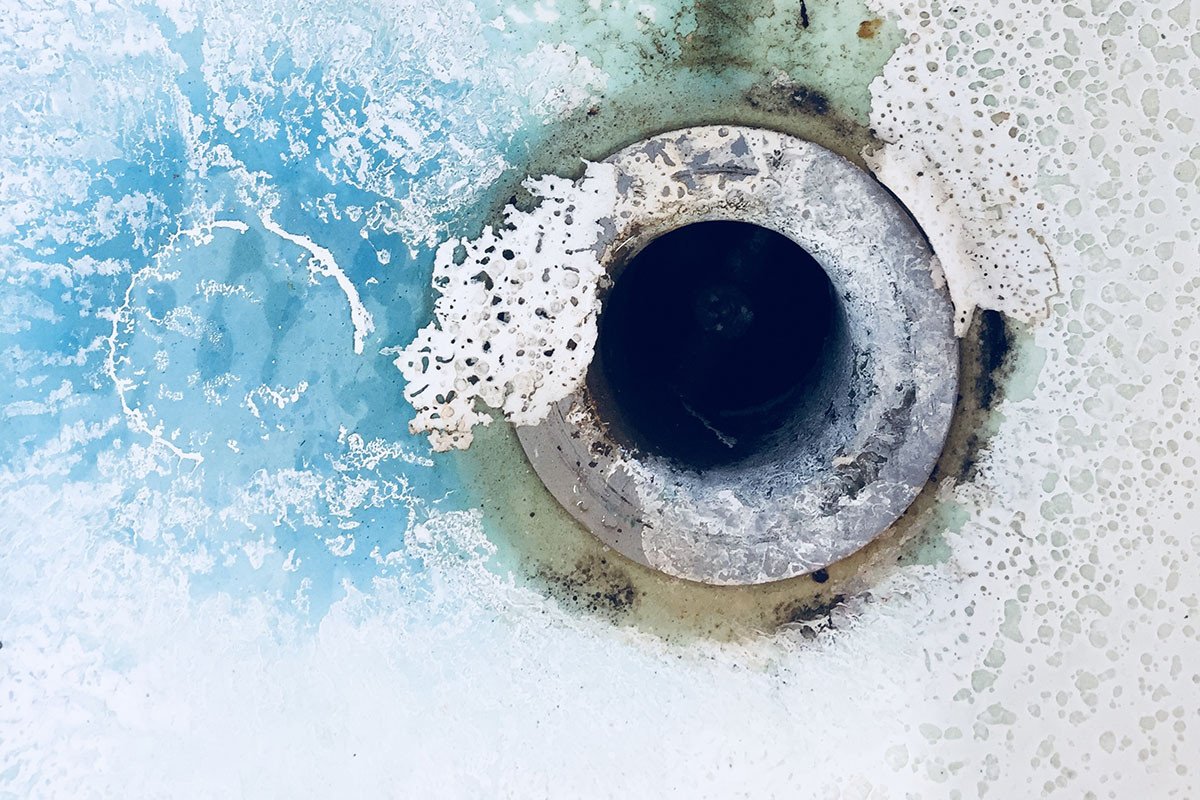
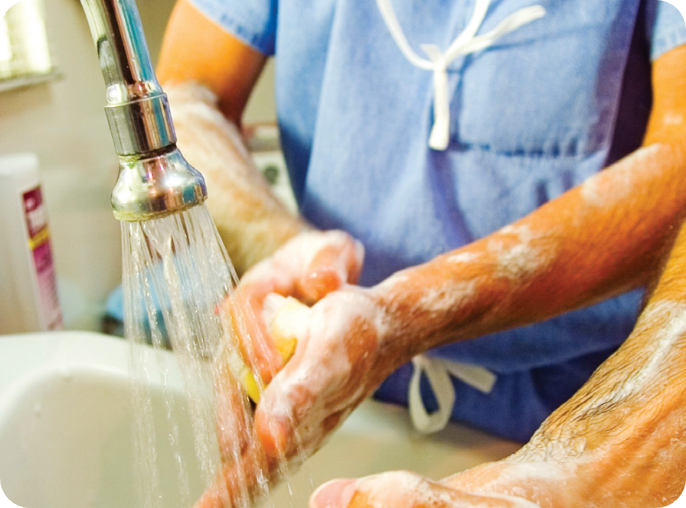




Limescale
Heated hard water can develop a chalky and white coating water fixtures that is difficult to remove.
Laundry
Whether it is for patients, healthcare workers or clinics, higher-quality water can benefit a variety of applications within your healthcare facility. Culligan systems can provide
water treated with deionization and UV sanitization for those working in laboratories. They can also help improve equipment efficiency while reducing labor, laundry and maintenance costs. In essence, the benefits of high-quality water extend far beyond basic utility, playing a pivotal role in the health and efficiency of your entire healthcare ecosystem.
Appliances
Enhance the guest experience by providing delicious water and ice, along with softer, brighter linens. By utilizing Culligan water treatment solutions, you can also avoid scale
buildup, extend the lifespan of your equipment and cut down on costs and detergent consumption. By investing in these thoughtful touches, you create a memorable and comfortable environment that encourages repeat visits and positive word-of-mouth recommendations. Remember, it’s the small details that often leave the biggest impressions.
Plumbing
From daycares to universities, Culligan commercial and industrial water treatment solutions provide benefits everyone can enjoy. Provide cleaner drinking water for
students and staff, cut down on labor and costs and improve sustainability efforts by reducing water waste. With Culligan advanced filtration systems, educational institutions can ensure the highest quality of water, free from contaminants and impurities. This not only supports the health and well-being of the entire community but also fosters a learning environment where everyone can thrive
Glassware
With leading-edge equipment options and global industry expertise from Culligan, you can feel confident that your consumers are receiving the best products possible. Save money, reduce scale buildup on fixtures and improve the quality and consistency of your offering. Our advanced water filtration systems not only enhance the taste and safety of your beverages and meals but also extend the lifespan of your appliances by preventing mineral deposits. You will notice a difference in every sip, bite, and customer smile.
Skin & Hair
We understand that each business has unique water quality requirements. Culligan can customize a solution that meets your water treatment concerns within your budget, time frame and sustainability goals.
Common hard water hassles near Minnesota include:
Limescale buildup
Heated hard water can develop a chalky and white coating water fixtures that is difficult to remove
Scratchy laundry
Minerals in hard water not only stiffen and damage the fabric of laundry, but also discolor and fade them over time
Decreased efficiency of appliances
Deposits of calcium carbonate can clog tubes and pipes in appliances, blocking water flow and reducing water pressure
Plumbing & pipe corrosion
Calcium buildup, in addition to clogging pipes, can corrode plumbing and even water heater tanks
Streaky or spotty dishes & glassware
Minerals in hard water combine with detergent to leave a cloudy film on dishes, even when run through the dishwasher
Irritated, dry skin & dull, lifeless hair
Hard water minerals block pores, preventing oil from reaching skin and hair and drying them out
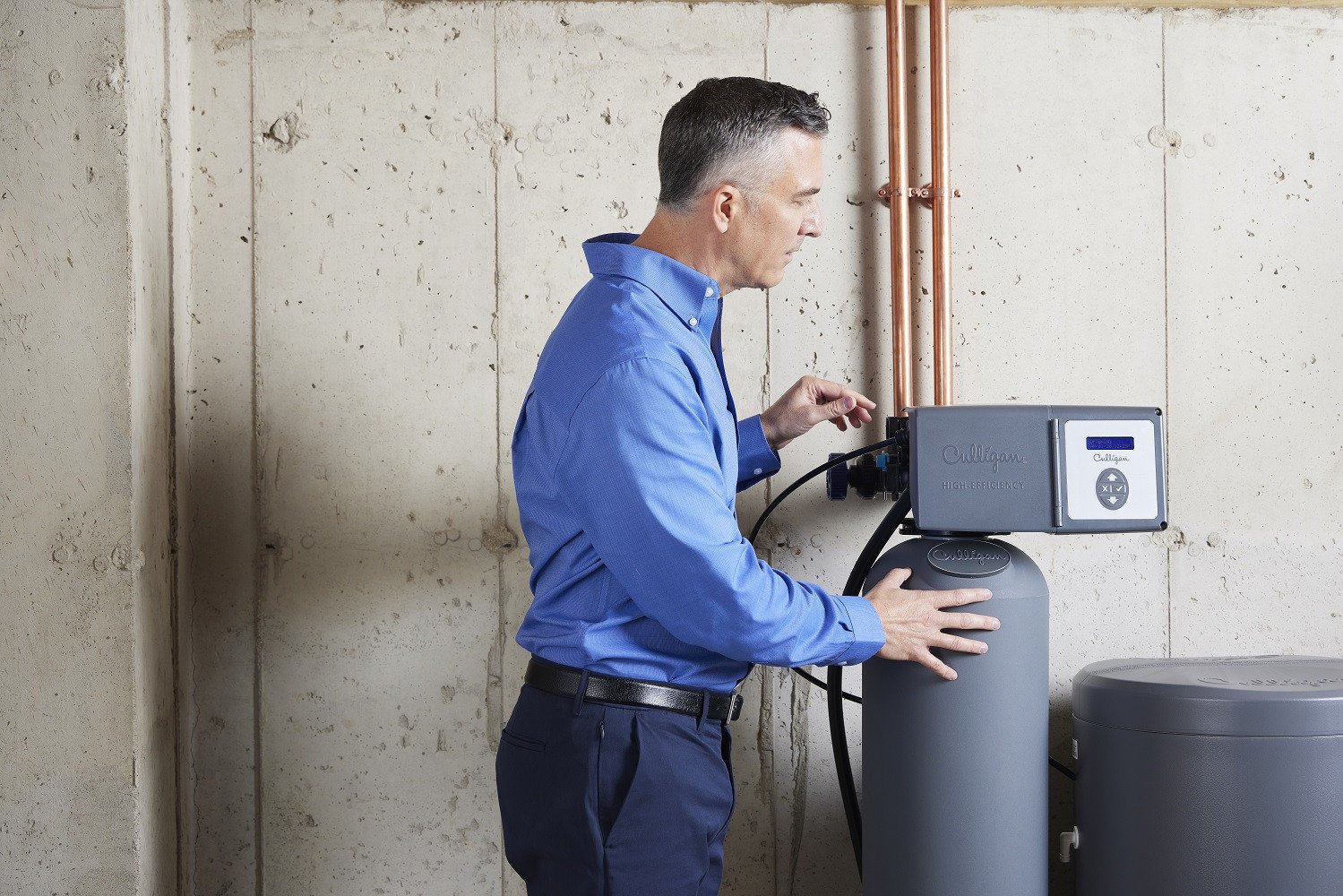
Hard water solutions from Culligan
The Culligan® Aquasential® High-Efficiency Water Softener can reduce operating costs by optimizing your salt, water and electricity consumption. With Aqua-Sensor® technology, the softener adjusts automatically based on changes in your water conditions, so you can spend less on utilities, soap and water.
Your Culligan water expert can help you find the right hard water solution for your home, including the Select Series, Smart or Salt-Free systems. Whatever you need, a Culligan system can help combat hard water in Minnesota.
How a water softener works
Water softening utilizes a process called "ion exchange" to remove dissolved minerals such as calcium and magnesium.
These minerals can't be trapped by a filter, so a molecular reaction is required. Water softeners have resin beads that hold onto sodium, and as hard water flows through the resin, the sodium is swapped for the hard water minerals. The hard water minerals are trapped inside the softener so they never reach your skin, hair or plumbing fixtures.
Worried about hard water?
Get a FREE water consultation!
Getting softer water in your home is easier and more convenient than ever with Culligan's in-home or virtual appointments.
Schedule Your Water Test
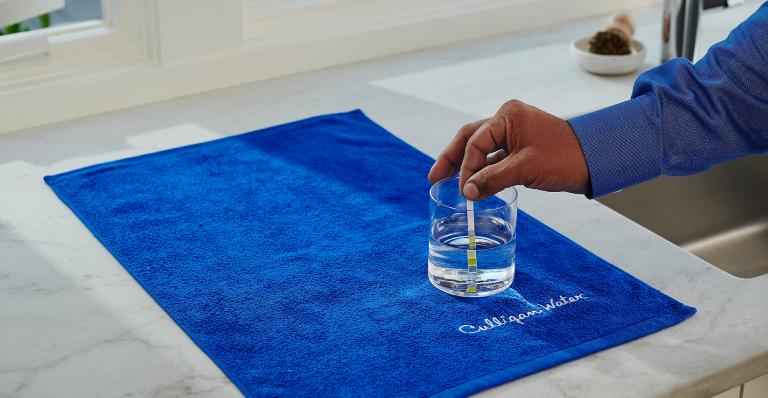
Frequently asked questions
Hard water occurs naturally in more than 85% of the water supply in North America, including Minnesota. Hard water contains dissolved minerals like calcium and magnesium. When this water dries, minerals stick to everything water touches — including your plumbing, hair and skin.
According to the Water Quality Association, hard water contains dissolved minerals above one grain per gallon (GPG), though relative levels of hardness have been established and are as follows:
According to the Water Quality Association, hard water contains dissolved minerals above one grain per gallon (GPG), though relative levels of hardness have been established and are as follows:
- Soft - less than 1 GPG
- Slightly hard - 1 to 3.5 GPG
- Moderately hard - 3.5 to 7 GPG
- Hard - 7 to 10.5 GPG
- Very Hard - 10.5 and higher GPG
Hard water is a common problem in Minnesota. The presence of hard water in your home results in:
- Limescale buildup around faucets or showerheads
- Soap scum on shower walls, bathtubs, sinks and other fixtures
- Plumbing and pipe corrosion
- Streaky or spotted dishes
- Stiff, scratchy laundry
- Irritated, dry skin or dull, lifeless hair
- Decreased efficiency of appliances and more frequent breakdowns
- An increase in the amount of soap and detergent needed for cleaning
You don't have to be a water expert to understand the basic principles behind water softening and water filtration. Here's an abridged version of what happens when you soften or filter water.
Softening water involves a process called "ion exchange" to remove dissolved minerals such as calcium and magnesium that can't be trapped in a filter bed. Softeners contain resin beads with sodium attached. As water enters the tank, dissolved calcium and magnesium are attracted to the resin. The resin swaps the sodium in exchange for the dissolved minerals, helping to remove the impurities from the water.
Meanwhile, filtering water involves the separation of particles from H2O. By passing water through a "filter bed" or "media bed", these granular particles are trapped and cleaner water flows to your tap. Water filters reduce a wider array of contaminants than water softeners.
Softening water involves a process called "ion exchange" to remove dissolved minerals such as calcium and magnesium that can't be trapped in a filter bed. Softeners contain resin beads with sodium attached. As water enters the tank, dissolved calcium and magnesium are attracted to the resin. The resin swaps the sodium in exchange for the dissolved minerals, helping to remove the impurities from the water.
Meanwhile, filtering water involves the separation of particles from H2O. By passing water through a "filter bed" or "media bed", these granular particles are trapped and cleaner water flows to your tap. Water filters reduce a wider array of contaminants than water softeners.
Yes, for nearly everyone it is safe to drink softened water. Some people are concerned that drinking softened water will increase the level of sodium in their diet. But the amount of sodium added to water during the softening process is low. If sodium levels remain a concern, combining your water softener with a reverse osmosis drinking water system can help to reduce salt and potentially harmful contaminants.
Yes, to continue operating at peak performance, a water softener requires regular maintenance. Having your local Culligan water expert perform an annual inspection on the equipment will not only extend the lifespan of your water softener, but it also has the potential to decrease future repair costs. Part of this inspection will include water testing, which helps to identify other contaminants that may impact operation.
Water softeners are usually trouble-free. Especially if salt levels are regularly monitored. Culligan water can help with scheduled salt delivery service that checks over the unit and saves you from transporting and lifting those heavy bags.
But if you prefer to do it yourself, make sure to use quality solar salt. That should lessen another issue — salt bridging in the brine tank. A salt bridge is a layer of hardened salt crust. If you suddenly lack soft water or your softener stops using salt, you should check the brine tank before calling for service. High temperatures, humidity or poor salt quality can create a bridge and prevent the softener's resin beads from regenerating. In clearing salt bridges, use caution because improper cleaning can puncture a hole in the wall of your water softener.
Water softeners are usually trouble-free. Especially if salt levels are regularly monitored. Culligan water can help with scheduled salt delivery service that checks over the unit and saves you from transporting and lifting those heavy bags.
But if you prefer to do it yourself, make sure to use quality solar salt. That should lessen another issue — salt bridging in the brine tank. A salt bridge is a layer of hardened salt crust. If you suddenly lack soft water or your softener stops using salt, you should check the brine tank before calling for service. High temperatures, humidity or poor salt quality can create a bridge and prevent the softener's resin beads from regenerating. In clearing salt bridges, use caution because improper cleaning can puncture a hole in the wall of your water softener.
Water softener size/capacity refers to how much the system can handle before regeneration is necessary. Capacity also impacts the amount of salt needed over time to make sure that the device can continue to treat water hardness.
The exact size/capacity of the water softener needed in your home depends on a variety of factors, including:
Ultimately, the process of selecting the best water softener for your home doesn’t have to be complicated. Working with your local Culligan water expert is a quick and easy way to find the correct size for your household. Getting this right is important for ensuring the best water quality and maximum efficiency.
The exact size/capacity of the water softener needed in your home depends on a variety of factors, including:
- The hardness of your water
- The service capacity from your well or municipal water supply
- Your typical household water usage
- Overall flow rate
Ultimately, the process of selecting the best water softener for your home doesn’t have to be complicated. Working with your local Culligan water expert is a quick and easy way to find the correct size for your household. Getting this right is important for ensuring the best water quality and maximum efficiency.






